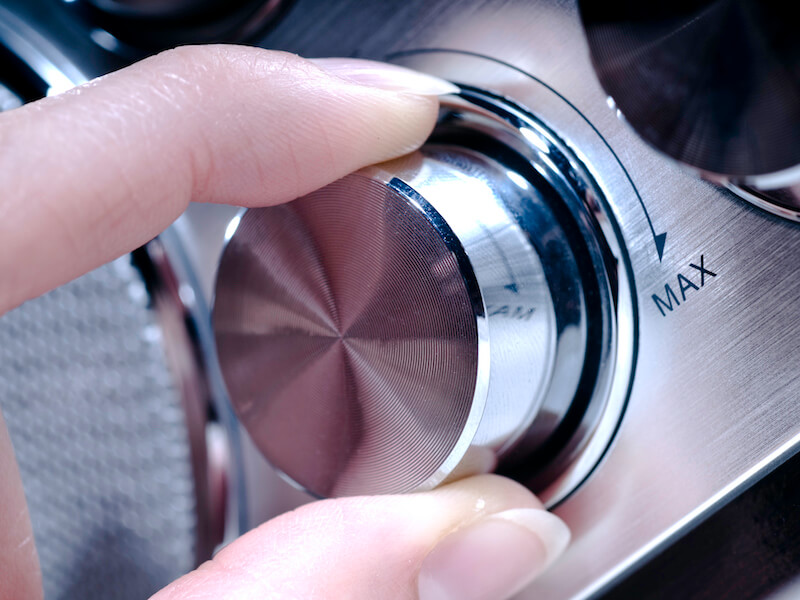
Knowing when you need some medical advice is usually rather easy. When you break your leg, for example, you know you should go to the doctor (or the emergency room, depending on the scenario). You may need a splint or a cast or supportive device, but the point is that you’re not likely to try “toughing it out”. At least, not for that long (particularly if you want your bones to repair themselves properly).
It isn’t always that obvious in terms of hearing aids, however. Hearing loss usually advances very gradually over time. This means knowing when to get treatment for hearing loss can be tricky.
That’s why it’s a good idea to keep an eye out for some distinct signposts that you might be losing your ability to communicate. It’s likely time to call us for a consultation if you do notice any.
Hearing aids and hearing loss
Hearing aids are the primary method of treatment for hearing loss. But everybody who has some degree of hearing loss won’t necessarily need hearing aids. Hearing aids won’t always be practical in cases of minor hearing loss. We may want you to hold off on using hearing aids because of this. Likewise, you may be directed to wear hearing aids only in certain situations.
In other words, the threshold for requiring hearing aids is not always a hearing loss diagnosis.
However, hearing aids will be the best solution in many instances. Many people won’t get their hearing loss diagnosed until it becomes more serious because hearing loss progresses gradually and often goes unnoticed for a while. Getting your hearing examined regularly is the key to catching hearing loss early and possibly mitigating the need for hearing aids.
And if that’s the case, you’re probably thinking: how can I tell if I require hearing aids?
You need hearing aids if you experience these signs
Hearing loss is one of those conditions that can create instant communication problems. But a lot of times you don’t even realize that hearing loss is the reason for those communication problems. So, at what point will a hearing aid help?
Look out for these indicators:
- You’re unable to understand people on the phone: Even the highest quality phone speakers have a habit of flattening a voice. If you have hearing loss, this can make it even more challenging to understand conversations. Again, specific frequencies are missing and the outcome is that it’s really difficult to understand those voices.
- When you’re in very loud settings, you have a difficult time following conversations: This is probably one of the most prevalent symptoms of hearing loss. One of the surest indications of hearing loss is that you have difficulty following conversations in noisy places, like bars or restaurants. This occurs because your ears are not receiving as much information as they used to, and your brain isn’t really able to fill in the gaps as easily. As a result, there’s a lot of muddled conversations.
- The volume on your devices is getting very loud: If you’re always turning the volume up on your television or radio or smartphone, it might be because of hearing loss. This is especially true if you keep turning that volume knob higher (and even more especially relevant if the people around you complain about how loud your media is).
- When people talk, you can’t always make out what they said: Many individuals feel like the total volume of life is fine so they never imagine that they may have hearing loss. But the thing about hearing loss is that specific frequencies of sound tend to go before others. Which means that the vast majority of sounds may seem ordinary but things in the high frequencies (such as certain vowels) will be distorted. This could cause you to have a difficult time making out what people are saying.
So what can you do?
Clearly, you know precisely what you need to do when you break a bone! But what do you do when you begin to experience the symptoms of hearing loss? What degree of hearing loss requires hearing aids? Well, that’s hard to answer, but when you begin detecting these symptoms, it’s a good plan to make an appointment with us. We’ll be able to evaluate the health of your hearing and find out just how severe your hearing loss may or may not be.
And if you do wind up needing hearing aids, a hearing exam will help identify the best device for your hearing needs. This means you’ll be able to get back to spending quality time with your friends and loved ones, you’ll hear your grandkids when they give you a call, your co-workers at your morning meeting, and your friends at happy hour.
Call us for a hearing exam so we can help you improve your quality of life.